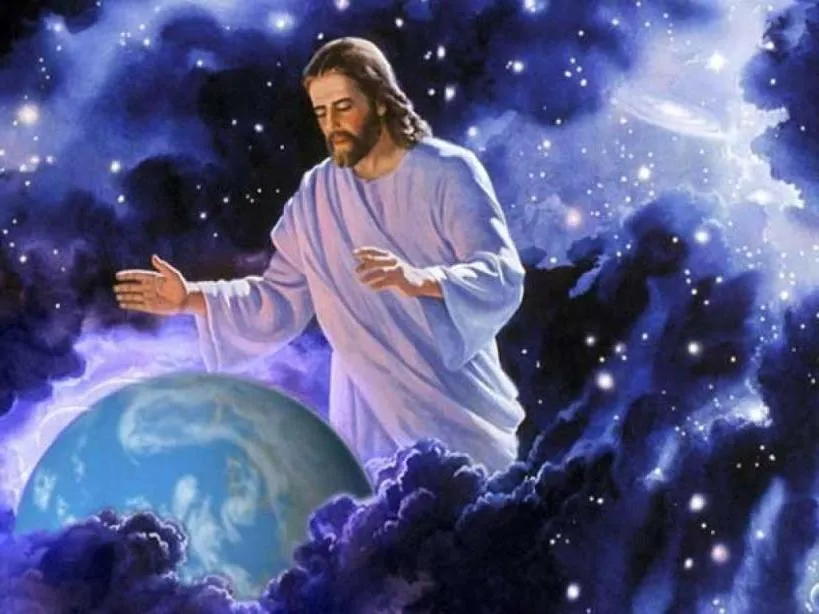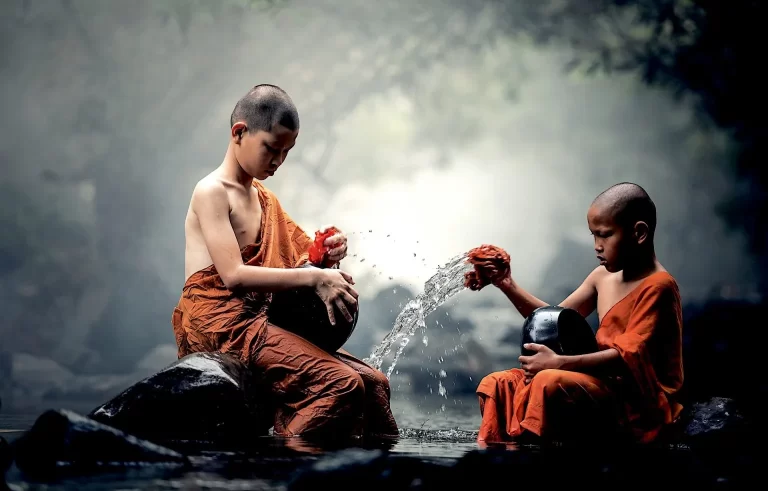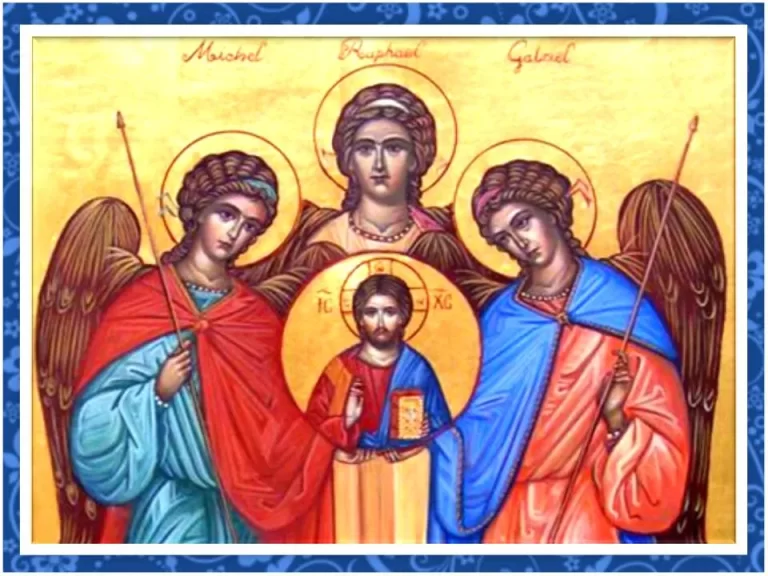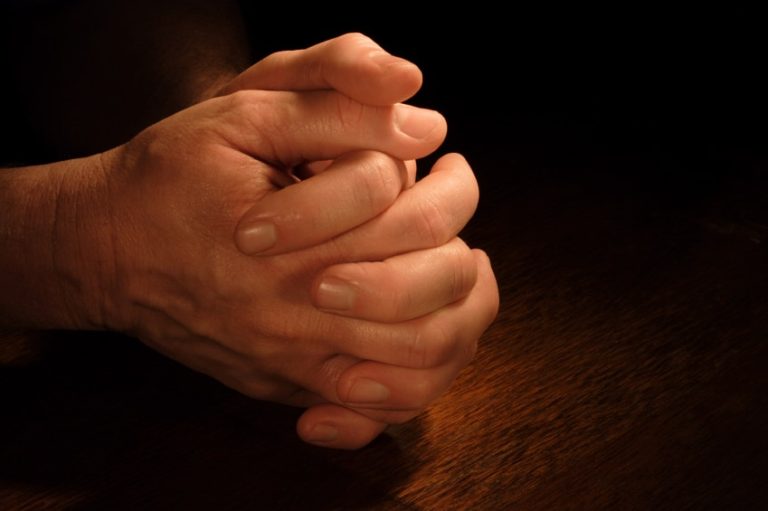If God created the world: Who exactly created God?
Who created God ? A question that human beings, great historians, philosophers, theologians and men in general have asked themselves since the world is a world. If you want to know the answer to this question and know the origin of everything we know including us, we invite you to read this article in its entirety.
Who created God?
Who created God ? It is likely that all of us at some point have asked ourselves this question, curiosity is part of our nature as human beings, wanting to give meaning or explanation to everything we know, as well as everything we believe in.
For almost our entire lives we have heard about God, about his life, work and word, about that supreme being who is for us at all times, fighting our battles and who is behind every success and moment of joy.
God is our Heavenly Father, that superior being, that spirit, that wonderful energy that created the world, but who created God ? That continues to be the million dollar question.
Probably during your childhood, your family has taught you to pray, to have faith and ask for forgiveness from that Heavenly Father, to that omnipresent and omnipotent being, who sees everything, who knows us from head to toe, and even knows our desires. and deeper longings, those that we have never mentioned to anyone, but then who created God ?
the beginning of everything
When we are children, we begin to read about Jesus, the Son of God, the Holy Spirit, the Virgin Mary, our Beloved Heavenly Mother, Mother of God and Mother of all creatures on earth.
We start reading the Holy Bible and what is the first thing we come across? To God, of course. To his wonderful works, a large number of miracles, the beginning of everything we know, including our own origin, but an unanswered question is who created God ?
Actually, who created God ? It is a very interesting question, deep, full of mystery, however, we must admit that perhaps it will continue to be a mystery, since it is almost impossible to know who created God ? when we know half or in a very general way our own origin.
Faced with this question, perhaps the most accurate and sincere answer would be that something or someone had to have created God, however, this apparent answer generates a number of other questions such as:
Who or what is God? Is God male, female, or a gender defining being? Is it energy? A fantasy created by man? What does it mean to be God?
What has existed forever?
Let’s go by parts. If something or someone existed before God, and in turn, created him, then God would no longer really be “God” because there would be something or someone greater and more powerful than him.
Part of his work, at least in the way we conceive it and learn from our parents, and in turn, they from their parents, and these from their ancestors, and so on, until the beginning of the world, is him, is to be almighty, eternal and preeminent creator of all that we know (and have yet to know).
Who created God ? If something or someone else believes it, this means two things, the first, that there was a time when God did not yet exist, and the second, that there is a being greater, more powerful, eternal and preeminent than him, who would then be the true creator of everything we know.
However, this does not end here, because there would be an even bigger problem, if the answer to the question Who created God ? is for example an alien, then the question becomes who created the alien?
So the answer would perhaps be, a burst of energy created the alien, so the question turns again, what caused that burst of energy? And the answer could be: a chemical reaction, a biological process or an astrophysical phenomenon, and thus the question would be transformed an infinite number of times and we would never find the true origin.
Or rather, we would not feel entirely satisfied with any answer, because as we mentioned at the beginning of this article, the human being, by nature, will always try to discover a logical, coherent explanation, capable of being understood by our reason, but the answers, no matter how good, never seem to be enough for us.
Some Logical Implications
As human beings, we always need to know more, understand more, and once we understand it, we ask ourselves another question and start again and this process repeats itself over and over again until the end of our days, until our last breath.
A philosopher once gave a cosmology conference, his presentation was impeccable, however, despite his excellent explanation with theories that proved his studies, an old lady dared to contradict him saying that his theory of the solar system was wrong.
And he affirmed: “We live on a crust of earth that falls on the back of a giant tortoise”, to which the philosopher, instead of defending or humiliating that lady of humble origins, asked: – “What is this tortoise made of? ?”
The old lady told him: – “You are a very intelligent man, but the first turtle is standing on the back of a second much larger turtle”…
And the philosopher persisted with his initial question – “but what does this tortoise stand on?” And the old lady gave a surprising answer: “I’m sorry, it’s useless, they’re turtles, to infinity.”
Perhaps, at this point you are wondering what is the point of this story? The answer: shows exactly the problem. The question cannot be answered simply by stating that something or someone else created God.
We cannot deny that many think that this whole story underlines the absurdity of believing in God to begin with, so the other possible solution is perhaps to say that our ideas about God are nothing more than simple fantasies created by ourselves.
And we can continue to say then that religion is nothing more than a human construction and coping mechanism, but even if we completely eliminate the idea of the existence of God, the question Who created God ? does not disappear from the scene.
The question of who created God ? is still present, for example, when and how did the universe originate? what or who created this universe? what caused the famous big bang? what existed before the big bang? How did time and space begin and what are they really? And so a series of endless questions can continue.
What we are sure of is that these are undoubtedly extraordinary questions, complex and full of mystery, that philosophers and scientists have tried to try to answer and have debated on these topics for thousands of years.
What could have been the cause of the universe?
In light of these questions, one of the most useful solutions would be to go back to the original idea: what does it mean to be God?
Human beings are contingent beings, whose existence depends on external factors or other beings, for example, we need air to breathe, food and water to nourish ourselves and in many cases, company or purpose to be able to express or feel that our life has been meaningful.
When we were babies, we needed our parents or caregivers, without them, none of us would have managed to survive, so we can say that our existence depends entirely on another, then, if we always need another being, how do we explain how it is that we are here?
If time and causality extend to infinity, then we would never have reached the present moment. Perhaps the best explanation is that at the current moment of the path there is a being that is not like us, that is, that is not contingent, so then, this being is necessary.
Being necessary means that one’s existence does not depend on anything or anyone else, in other words, this other being is self-caused and self-existent, which is why it is often considered God.
Even J. Jay Mackie, a renowned philosopher and preeminent atheist, acknowledges that the idea of a necessary being provides a robust insight into the difficult question before us: Who created God ?
Every existing thing in the world is contingent, the world as a whole is a collection of so many things, therefore it is contingent on itself and there must be a sufficient reason for the world other than the world.
This, then, would have to be a necessary being, which contains its own sufficient reason to exist. Obviously, things must have a reason for their existence, and this must ultimately be found in a necessary being, something free from the disease of contingency must exist.
This contingency seems to be a disease that affects everything in the world and the world as a whole, even though it was infinite in the past. This understanding sees God as the origin of all life and of existence itself.
But then, who created God ? Or perhaps, we should think that God was not created, because he is the source of all creation, if this is the same God described in the Bible, in the Koran or in any other holy scripture, although that would be the subject of another discussion, and in this case, from another article.
Who created God according to the Bible?
At least, one of the first Christian Jews believed in this God, so perhaps, then, the question Who created God according to the Bible would be valid ?
The Bible, despite being considered a sacred book, cannot answer this question either, however, there are verses that God is the King of eternity, he is the creator of everything we know. Some of these verses are:
- Salmo 90:1-2
- Isaiah 40:28 (King James Version , 1960)
- Judas 25
- 1 Timothy 1:27
- Revelation [Revelation] 1:8
- 2 Pedro 3:8
- Isaiah 40:22; 55:8, 9
- Revelation 4:11
- Genesis 1:1-2
- Job 38:4, 7; 33:4
- Colossians 1:15
Each of these verses are proof that God exists, what more proof do we want when we exist?
And furthermore, we know that our human condition makes us depend on others for our lives, so there must be that God who has created us and allows us to live.
It is normal to ask ourselves who created God ? and even more difficult to believe in his promise that he will return to dwell among us, as a man.
Perhaps we doubt, because we fail to understand that one of the characteristics of God according to the Bible is that he, being eternal, does not have a beginning, nor does he have an end, so for God one day can represent more than a thousand years.
The Apostle Paul believed that philosophers, theologians and artists could reach the same conclusion about God “the creator”, who is also all-powerful and eternal. On one occasion, he expressed in front of a crowd of Greek listeners:
“The God who made the world and everything in it is the lord of heaven and earth and does not live in temples built by any human being, is not served by human hands as if it were someone in need, by the On the contrary, he himself gives life, breath, daily bread and everything else to everyone.”
Because in this creator God we live, move and have our being. God, the documentary filmmaker, the director of this great work called life, planet and the creatures that inhabit it.
Who created God ? Perhaps we will never know, but unless something or someone has created us, it allows us to be alive, to enjoy its infinite wonders, the breeze, the moments.
God is the creator of all our experiences (good and not so good), of our family, of everything tangible and intangible that allows us to be alive and enjoy this world, this perfect and wonderful creation.
Those who reject God
Those who reject God and deny that he was the creator of everything we know are denying their own existence, since as we mentioned before, our human life is ephemeral and also depends on other beings.
God’s creation is so perfect that even a single-celled organism is a marvelous work. Everything that exists has an origin, some say it was God, others affirm and defend that we are the result of our own evolution.
However, in both cases, we would have to recognize that there must have been something or someone that originated that first cell, for example.







